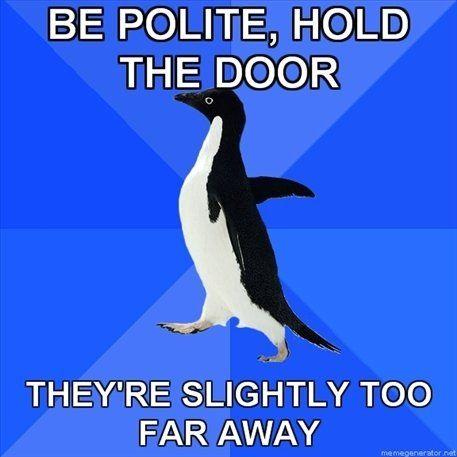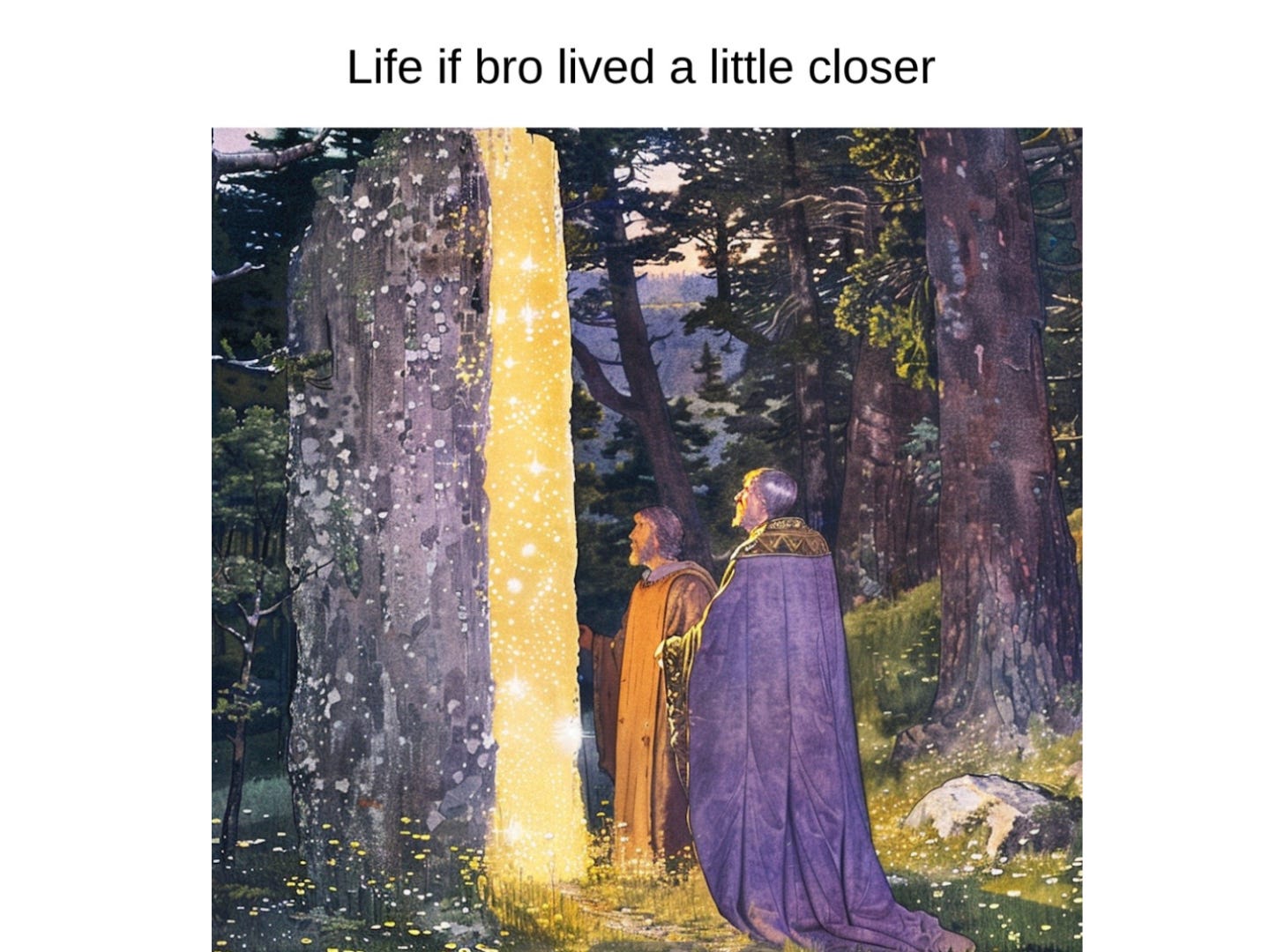Memes are a constantly shifting tide. Since their inception, they’ve become a new mode of communication that reflects culture back to us. Yeah, they’re silly and unserious, but they also shine a light onto societal shifts.
And one burgeoning trend I’m currently fascinated by? That’d be something I call the ‘Life If They Lived Closer’ meme.
The format is quite basic. Users share an uplifting or funny or heartwarming or weird or whatever video (or series of photos) captioned with a phrase similar to“what life would be like if they lived closer.”
The trend has been bubbling under the surface of TikTok for several weeks now. There have been examples where clips of famous duos are used, or cats frolicking together, or… uh, Hello Kitty?
Most of them haven’t received that much traction. But there is one that was a resounding success: the Bro Wizards.
This is the most popular incarnation of the ‘Life If They Lived Closer’ format — and is a template that could catch on. But, deeper than that, I think it’s a great example of how our relationship with memes is altering.
Let’s take a few steps back.
The tone and content of memes have shifted a huge amount over the past 15 or so years. In the early days, they were focused on relatable reactions to specific situations. Think of formats like Scumbag Steve:
Or Socially Awkward Penguin:
These once incredibly popular Advice Animal memes follow a familiar pattern: they’re one-dimensional tales that reference a real-world sitatuation. Tonally, their emotional impact is limited and they veer towards cynicism.
In the following years, the most noticable change in meme culture was the move away from personal commentary to self-referentialism. This saw jokes retooled and tweaked to remark on current happenings. An example of this is a meme about Mark Zuckerberg’s fixation on Sweet Baby Ray’s BBQ sauce:
Here, the format bends back in on itself. You could call this the cynical ouroboros stage of memes. The idea is to use a shared language to mock an event. If you’re in on the joke, it’s brilliant. If you’re not, it’s incomprehensible. For some of you, the above image makes perfect sense. For others it means absolutely nothing. And that was the point. It was internet humour for internet people.
Things didn’t remain static though. There’s been a recent shift deeper into metamodernism that has put an increasingly emotional core at the centre of memes. In other words, silliness and sincerity now have equal footing. The two are intertwined, inseparable. Memes got emotional.
Yet there’s an expansion of this bubbling up, something the ‘Life If They Lived Closer’ meme encapsulates: existence outside of the internet.
As we discussed, memes were originally a way for online people to create their own community, yet as a generation that has always lived under the yoke of the internet grew, so did the desire to look outside of it.
Self-referentialism still exists, of course, but the core of the ‘Life If They Lived Closer’ meme is a hunger for physical connection, of recognising the magic in spending time with friends.
There’s a delightful metamodern element of the meme where people are using the internet to tell other people to get off the internet. In a sense, we’ve come full circle from Advice Animals, returning back to memes that concentrate on personal, rather than collective, experience.
So will the ‘Life If They Lived Closer’ meme take off? Will it become ubquituous?
Maybe, maybe not. The format itself might be a flash-in-the-pan, but what’s clear is this points a new way forward for memes, where by breaking into the wider sphere of human experience and disgarding elements of self-referentialism, they’ve embraced an emotional connection and an appreciation for the world around them.
Really, whether the ‘Life If They Lived Closer’ meme catches on is moot point. Eventually something that reflects this new state will — and that’s exciting in itself.







